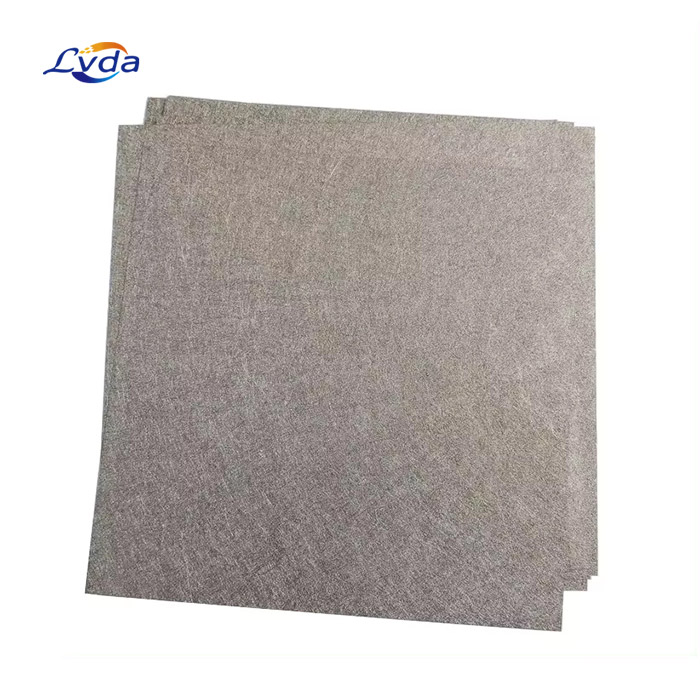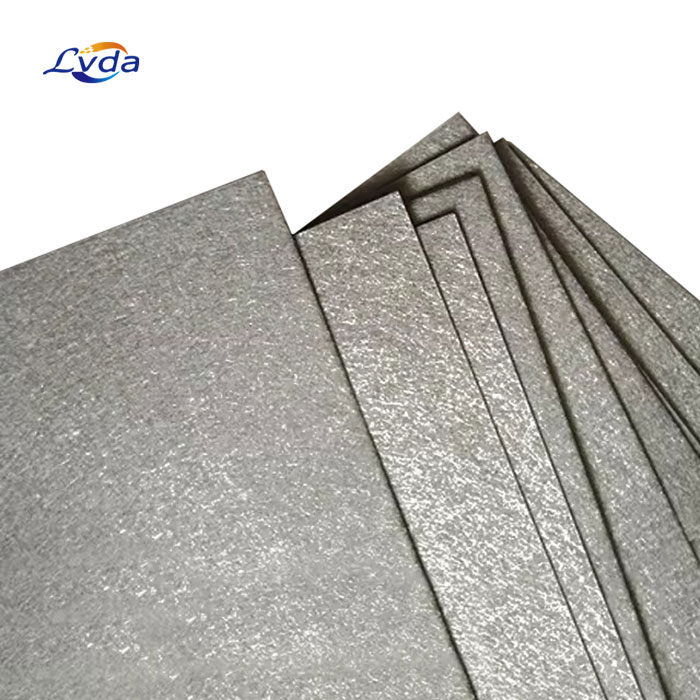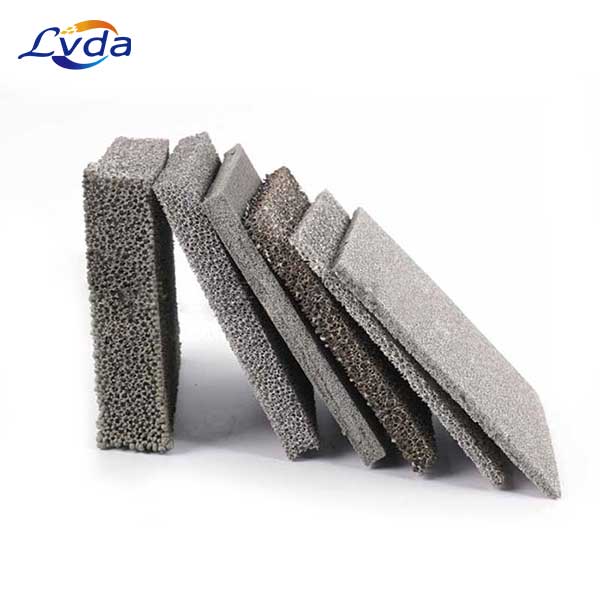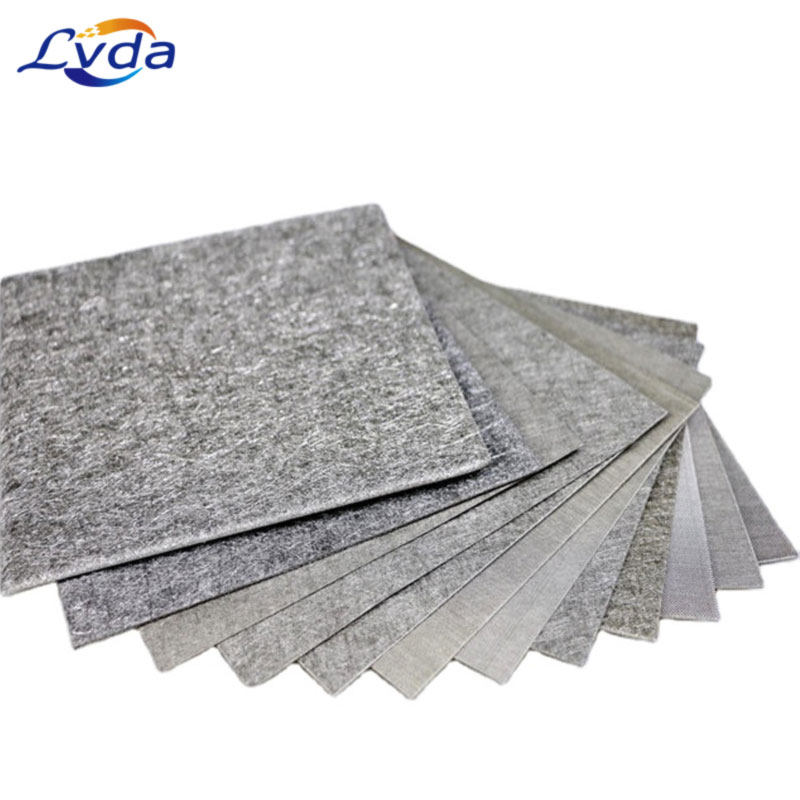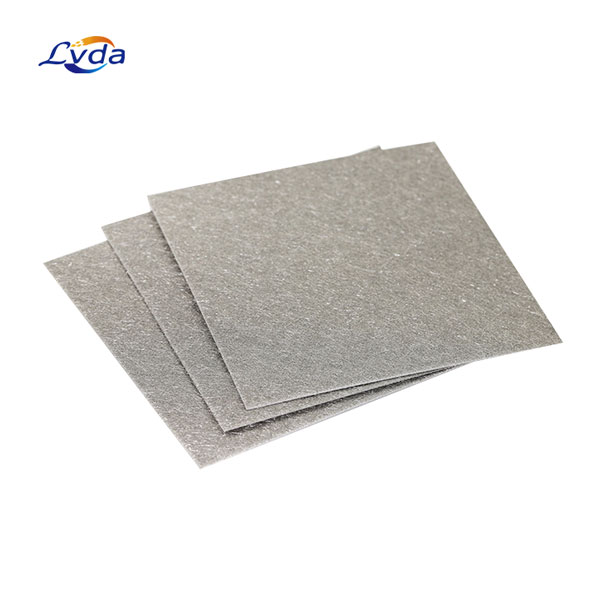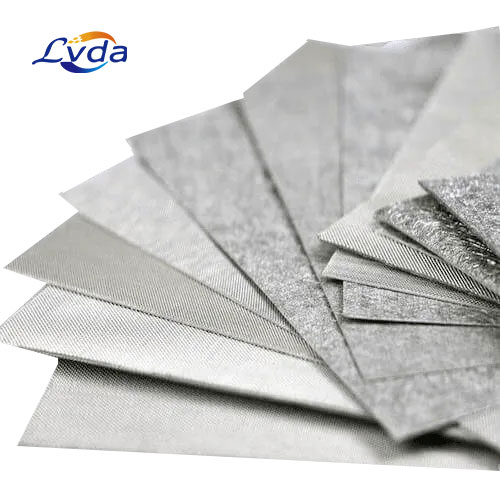Product Details
Water electrolysis is a promising pathway for clean hydrogen production, wherein electrical current is used to split water into its constituent elements, hydrogen and oxygen. The heart of any electrolysis system is the electrolytic cell, which houses the electrodes and the electrolyte. One crucial material in these cells is the sintered titanium fiber felt, which acts as an electrode substrate or current collector due to its unique characteristics.
Sintered titanium fiber felts are engineered porous materials composed of interlocking titanium fibers, offering high surface area, excellent electrical conductivity, and corrosion resistance—all essential for efficient hydrogen generation. These felts can be customized to have varying degrees of porosity and thickness, allowing them to be optimized for different types of electrolyzers and operational conditions.
Understanding Porosity
Porosity refers to the presence and size of pores within the material. In the context of sintered titanium fiber felts, porosity is directly related to the gas diffusion capabilities and the surface area available for electrochemical reactions. Higher porosity generally means more space for gas bubbles to pass through, reducing the chances of blocking and increasing the overall efficiency of the electrolysis process. However, too much porosity may compromise the mechanical strength of the felt.
Thickness Variations
The thickness of the sintered titanium fiber felt determines its electrical resistance and heat dissipation properties. Thicker felts provide better thermal management but may result in higher electrical resistance. Conversely, thinner felts might offer lower resistance but could be less effective in heat distribution, potentially leading to hotspots that affect the lifespan of the electrodes.
Parameters
Material : Titanium
Color : Light gray
Thickness : 0.2mm - 2mm ( often 0.25, 0.4, 0.6, 0.8mm)
Porosity : 60%, 70%, 80%, etc
Shape : Square, round, or rectangle
Size : 400×400mm, 500mm×500mm, 600×600mm, etc
Material Composition
The sintered titanium fiber felt is composed of ultrafine titanium fibers, typically with diameters ranging from several micrometers down to nanometers. These fibers are laid down randomly and densely to form a felt-like material, creating a large surface area and interconnected pore network. The sintering process involves heating the fibers under controlled conditions, causing them to bond without fully melting, thus preserving their fibrous structure while achieving strong inter-fiber connections.
Key Properties
1. Chemical stability. Titanium is renowned for its excellent corrosion resistance in both acidic and alkaline environments, making it perfect for the harsh conditions found within water electrolyzers, particularly in proton exchange membrane (PEM) and alkaline water electrolysis systems where the electrodes are exposed to KOH or acidic PEM solutions.
2. Electrical conductivity. Despite being a metal, titanium fiber felt provides good electrical conductivity which facilitates electron transfer during the electrolysis process. This enhances the reaction kinetics, thereby improving the overall efficiency of hydrogen production.
3. High porosity and surface area. The 3D structure of the felt provides an enormous surface area for the electrolytic reactions to occur, which increases the rate of hydrogen evolution and oxygen evolution reactions. The porosity also ensures unimpeded flow of gases and liquids, reducing potential pressure drops and enhancing mass transport.
Applications of Sintered Titanium Fiber Felt for Water Electrolysis
The sintered titanium fiber felt is primarily used as a catalyst support material in water electrolysis cells. The high surface area and excellent electrical conductivity of STFF make it an ideal substrate for the deposition of catalysts such as platinum or iridium oxide. These catalysts are essential for the water splitting reaction, which produces hydrogen and oxygen gas.
In addition to its use in water electrolysis cells, the sintered titanium fiber felt can also be used in other electrochemical applications such as fuel cells, batteries, and supercapacitors. Its unique properties make it a versatile material that can be tailored to meet the specific requirements of different electrochemical systems.

 English
English اللغة العربية
اللغة العربية বাংলা
বাংলা Deutsch
Deutsch Français
Français Bahasa Indonesia
Bahasa Indonesia Русский алфавит
Русский алфавит Español
Español اردو
اردو Português
Português
